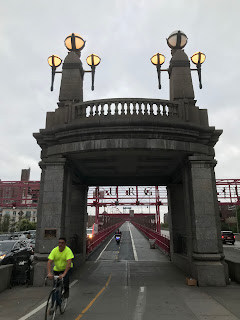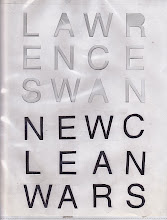Jonah the poet
Like it or not, the sun rises. Paradise, in my mind, is most paradisiacal a couple of hours before sunrise. Brahma’s time.
Do you know Brahma?
Have you accepted Brahma into your heart?
Who is Brahma, anyway?
Nas is doing one of his routines.
I would have to consult my encyclopedia of Eastern Philosophy and Religion, wherever it is, Jonah replies. Possibly under the sofa at my mother’s house. I could Google Brahma, but I don’t want to go online.
Online belongs to daytime and I need to hold on to Brahma time even though the sun is up and has been up, shining on buildings across the Tigris River, near where it joins the Ganges. Tugboats push and pull barges past and a strange ball game is happening behind the two friends.
Brahma is a concept of the Absolute as the creator of the universe, his co-worker claims. “Like all theological concepts, such as Yahweh, Allah, it is generated by the human brain, and projected on the veil that conceals the Absolute, hallowed be their Name.” Nas is lecturing while scrubbing bowls. He puts down the rag and lights a cigarette.
Theological doctrines are idols, Jonah asserts, and continues:
Whose time is it?
From whom did I borrow this time and to whom should I pay rent for the space my body displaces?
Who do I pay and how do I pay the debt with which I was born?
Before the collector comes to take me to the crematorium.
Have you looked for a sign? asks Nasreddin. Have you consulted an oracle?
I have been trying to remember my dreams, with little luck. All I remember when I woke up this morning is that I dreamed I found a stylus and jar of ink.
That it is very auspicious, says his co-worker, nodding. I am a licensed dream interpreter as well as astrologer and this dream indicates you will soon achieve great sexual power with a powerful organ that will ejaculate like a stallion’s and your seed will multiply like Father Abraham’s.
Wow. Are you kidding or is that really what God has called me to Nineveh for?
Tell me about this divine call.
Twelve years ago, after a day of fasting and a night of prayer, I was in spiritual turmoil and was seized with a strong expectation that God’s messenger would soon appear to me. I was sitting outside watching the sky before sunrise and I suddenly noticed a light low on the horizon. I don’t know how long it had been there. As it rose higher I became alarmed. My heart was beating like the drum of Shiva. Was this a comet, flung at us by a wrathful deity? Was this a space ship? An incoming intercontinental ballistic missile? I was afraid I was witnessing something supernatural, perhaps a demon, and perhaps the Anointed, the alpha and omega. I woke up my father and he calmly told me it was only the morning star.
It was only a planet, but more than that. I was exultant and believed this star was a sign of power, of the power of signifying itself, anointed with human meaning and poetry and hope for the future universal awakening and liberation.
You’re nuts, barks Nas. You saw Ishtar, the Queen of Heaven.
Anyway, that is when I applied for an assistantship in a department of Graduate Studies in Prophecy and Theopoetics. Well, last year, after I got my degree, the word of the Lord came to me and told me to go to Nineveh, that wonderful town, and to cry out against it, for its wickedness had come up before the Lord.
I freaked out. I didn’t want to go to Nineveh. How would I ever be able to afford to live there, in that hell of a town? How would I make a living? I didn’t have the courage to answer the call, so I ran from God and got on the first boat I could find. The first one I found was going to Tarshish. Well, a big storm blew up and it didn’t seem that the boat would makeit. I don’t want to go into detail right now, but the sailors did some divination and determined it was all my fault. I had made the mistake of mentioning that I was running from God so they guessed God had sent the storm.
So they threw me off the boat. I was swallowed by a big fish. I wrote a poem in the fish’s belly. The fish puked, and I washed up on the beach.
I’ll say this for you, Nasreddin observed, you definitely took the road less travelled.
Now Jonah is trying to establish his base of operations in Nineveh. He got the job washing pots and this is where he met Nas. Nasredden was an odd person, very tall and very thin, very pale, and bald. He constantly carried on a satirical monologue to whoever was in earshot, or just to himself. Like Jonah, he was a perpetual student. Unlike Nas, Jonah was short, with skin the color of strong tea, and black curly hair. The cafe where they worked was frequented by customers who were kind of bohemian — students, professors, artists, poets, and activists who worked for non-profits. They came to this place to drink coffee and smoke and discuss politics and eat falafels and spinach pies, and dip bread in hummus and baba ghanouj, and argue and smoke and drink coffee. Mostly a bunch of phonies, Nas says. He then challenges Jonah with intrusive questions that take root in Jonah’s mind and sprout.
What is Jonah, a man in his thirties, doing washing dishes? He is a trained prophet. He finished his graduate studies and he should have a real job, one that doesn’t involve a wet, dirty apron and hands that always smell of Brillo.
It’s not that he doesn’t have a vocation. His vocation is prophet. It’s not that he doesn’t have vision, it’s that he is spiritually near-sighted.
The coffee is too hot. He sucks a few drops from the handmade clay mug and squints into the future.
Maybe Jonah spends too much time with this jokester Nas. Jonah got the dishwashing job before he found a room. Rent in Nineveh was as high as the third heaven. Nas offered Jonah a corner of his own tiny room for only half of Jonah’s monthly earnings. It was miserable, but it was a step above sleeping on the street. He had only slept on the street once, his first night in the city, and he swore that if he couldn’t find a shelter to sleep in he would renounce sleep altogether and never shut his eyes again.
Poor as he was, Jonah considered whether he was weighted down by possessions. Maybe that was the problem. All of his worldly treasures were in the bag he was carrying when he arrived in town. There is nothing sentimental. No keepsakes. No books. No food except for some moldy figs. He had a change of clothes and some other items. A Barlow knife, a bottle of aspirin. He pulls out his spare coat. He doesn’t need a second coat. He’ll give it to someone who has no coat. He emptied the other things from the bag on to the dirt floor and was surprised to find on top of everything a stylus and jar of ink.
The next morning, a couple of hours before dawn, he holds the stylus as it moves over the papyrus, scratching the surface and leaving a sequence of marks that are nearly indecipherable even to himself but which form and deform letters of the alphabet of his native language. He stops writing and reads what is written as if it was a message from someone else, someone he’d been waiting to hear from.
“Get up, go to Nineveh, that wonderful town, and proclaim to to it the message that I tell you,” the message reads.
I know this message, he thinks, and he picks up the stylus again and develops the idea the spirit had given him. The message is a warning to the City, an ultimatum, and not just to this city, Nineveh, the greatest city in the world, but to all cities and human communities, to the global city that has arisen from the interconnection of all people, the global culture implanted in us, the stream of information that passes through us and among us. The collective interconsciousness.
“Forty days more, and Nineveh shall be overthrown!”
He wrote this on walls in the marketplace and on the bridges that cross the Ganges and the Tigris. People saw this and talked about it. He took the papyrus to scribes and made thousands of copies of a document that he handed out on the streets as he walked across the city. It took three days to walk across Nineveh, handing out his poem and shouting it out loud from the middle of the street. Word spread fast. Who was this prophet? Isn’t he the dishwasher who works at the cafe?
Jonah is called to speak before the assembly. He reads from the document and he reads notes written on the papyrus.
“Turn back from the course you are on, change your minds, you are headed for destruction. The sun will punish you, The sky will be on fire. There will not be enough wheelbarrows to carry your dead from your homes.”
And so on.
To his surprise, his message was received loud and clear. The King rose from his throne, removed his robe, covered himself in sackcloth and ashes, and held a press conference. He declared a state of emergency and ordered a quarantine. Take care of each other, the King commanded. Practice nonviolence, and sign up for free universal healthcare, debt forgiveness, a living wage, free college, a social safety net for widows and orphans, and the abolition of the military industrial complex.
The people of Nineveh understood and stayed home for forty days and fasted and prayed and talked to their families and tried out recipes and studied foreign languages. By the last week of the quarantine everyone had mailed in their ballots.
Ultimate Reality responded to the evolution of human consciousness and paradise was co-created and destruction was averted, for the time being.
Jonah became a celebrity known for his poem that saved the world from cosmic cremation. He became a leading figure among the Nineveh Literati and a frequent guest on talk shows.
Over a thousand years later a shrine was built on his tomb, The Mosque of Jonah, that was a holy place for both Moslem and Christian pilgrims, until it was destroyed by the fundamentalist nationalists of ISIS, who complained that the house of prayer had become a den of apostasy.




